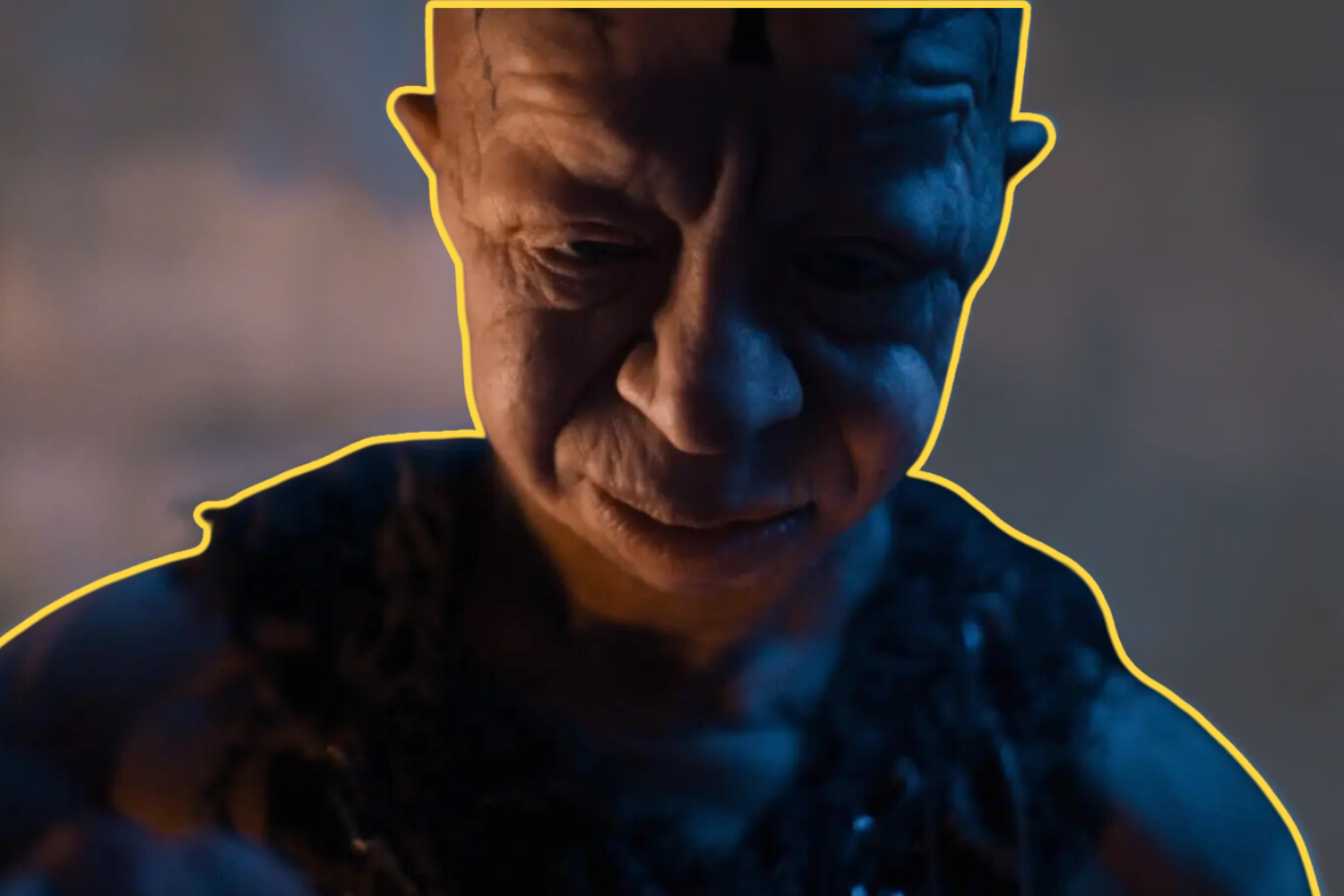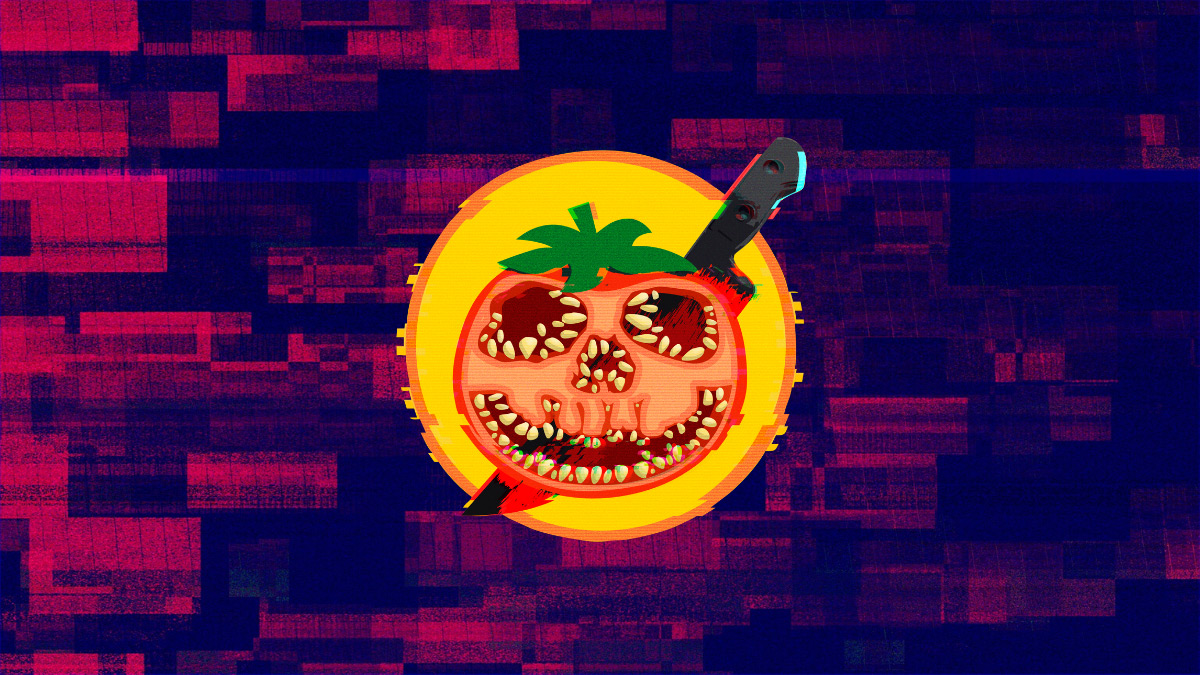Editorials
‘Baskin’ Is a Surrealist Turkish Trip To Hell
May 3rd, 2024 | By Eric Vega

International horror films are more popular than ever, and it’s not hard to see why. For many viewers, these movies might be the first window into a culture that they’ve never been exposed to. That’s what makes the Turkish film Baskin such a breath of fresh air. Premiering in 2015, it’s a rare breakout from a country that’s not known for its filmmaking – which makes it an incredibly unique viewing experience for foreign audiences.
Become a Free Member on Patreon to Receive Our Weekly Newsletter
Drawing on Turkish myth and folklore, Baskin follows five police officers responding to a distress call, only to be confronted by Hell itself. It’s a story about masculinity, corruption, and redemption – and it’s weird. Like, really weird. Surreal time shifts, haunting visuals, and an uncomfortable amount of frogs all add up to one gripping fever dream of a movie.
We first meet our protagonist, Arda (Berat Efe Parlar), as a young boy. Awoken in the middle of the night by his mother’s lustful moans, little Arda gets up to investigate. A strange red light illuminates the house, and the crinkling static of a television pairs eerily with the rapturous moaning. The sequence ends with a ghoulish hand reaching towards a frightened Arda. This creepy moment sets a bizarro tone that only intensifies from here on out.
Decades later, an adult Arda (Görkem Kasal) – now a freshman police officer – enjoys a night out in a restaurant with his unit. While they may be officers of the law, it’s obvious that they don’t respect it. Even the police chief Remzi (Ergun Kuyucu) joins in as they spend their time gambling and sharing dirty – and criminal – stories. One particularly obnoxious officer, Yavuz (Muharrem Bayrak), tells the newbie cop about the time he accidentally hooked up with a transgender sex worker. It’s framed as a joke, but the story has an unsettling quality of dehumanization and hypocrisy. However, the humorous tone evaporates as soon as a young waiter joins in the laughter.
Suddenly, Yavuz becomes enraged. He reacts violently to what he perceives as a slight toward his masculinity from a stranger, leaving the young man bloodied on the floor. Of course, none of the officers intervene – and some even encourage the beating. Writer/director Can Evrenol makes it clear that we’re witnessing something terrible here, a childish outburst in retaliation to a perceived emasculation. These officers like to act tough, but they harbor bubbling insecurities just below the surface.
The officers leave, but Seyfi (Sabahattin Yakut) makes a stop in the restroom to deal with a migraine. A frog watches as he vomits bile and then inexplicably screams at his reflection in the mirror. In Turkish folklore, looking into a mirror at night can cause someone to see their true selves. The filmmakers are telling us that these men are unhinged, and the frogs act as ill omens of the horrors that await them.
This type of symbolism might leave some international viewers scratching their heads, but it’s all crystal clear to a Turkish audience. Some of the stranger moments in the film are influenced by local superstitions, folklore, and even Zoroastrian mythology. If these sequences spark your curiosity (like they did mine), I would highly recommend diving into the online discussions and even reading up on Turkish myth. It’s a fascinating rabbit hole and will likely clear up any lingering questions you have.
After Seyfi recovers, the officers climb into their van and drive off into the misty night. They soon receive a distress call summoning all available units to the Inceagac neighborhood. On the way, Seyfi nearly crashes after a nude figure streaks across the highway. The officers stop and search the area, but find nothing but more frogs. As they head out once again, another figure appears in the middle of the highway. This time, Seyfi runs them over and swerves into a river.
Just like that, we’re back in the restaurant. It’s a disorienting shift, leading viewers to question the reality of the film. The restaurant acts as a liminal space in the film, existing between worlds and allowing for spiritual reflection. Here, the officers are enjoying the night as if nothing had happened. Only Remzi and Arda seem to sense that something is off. An unsettled Remzi confesses to Arda that he’s being haunted by an unknown presence. Arda spots a mysterious cloaked figure in the back of the restaurant. The world begins to crumble, and the ceiling drips with blood. Arda falls into a pool of liquid, sinking deep. A gargantuan hand appears and pulls him out of the water.
Back in reality, Arda wakes up as he’s pulled from the river by his fellow officers. They search for the man they hit, but once again find nothing. Instead, they come across a small encampment and demand the inhabitants lead them to Inceagac. One man volunteers and leads them through the forest.
When they emerge, the officers come upon an abandoned Ottoman police department with a police vehicle out front. Their guide flees and, despite some debate, all five officers enter the building to provide backup. So begins their true descent into Hell.
From here, the film cranks the volume up to 10 and we enter nightmare territory. The building itself is moist with decay, giving the sense that these men are walking through the bowels of some ancient beast. My compliments to the set designers: the world they create is tangibly grotesque and feels both impossibly vast and deeply claustrophobic.
Soon, the men encounter a lone police officer bashing his head bloody against a wall. The officers intervene but are unable to get much information out of him. When asked about the rest of his unit, he feebly gestures toward a staircase leading down into a black abyss. Seyfi is ordered to take the officer back outside, but the rest head down into the darkness.
Unfortunately for Seyfi, he spots yet another frog hopping down a hallway. He abandons the injured officer and follows the animal to his death. It leads him to what can only be described as a bathroom from hell, where numerous filthy figures engage in the kind of obscenities that you’d see in a Bosch painting. They swarm him, and that’s the end of Seyfi.
The situation quickly deteriorates as the other officers uncover a nest of cannibalistic butchers. Apo (Fatih Dokgöz) is attacked by the Cloaked Figure, who bashes his head with a sledgehammer. Meanwhile, Arda is pursued by a cleaver-wielding woman, who chases him all the way back into his repressed childhood memory. As he wanders around the memory, he stumbles back into the restaurant with Remzi, who informs Arda that he’s being haunted by demons from his childhood.
Arda regains consciousness in a ritual chamber, chained alongside Remzi, Yavuz, and Apo. Here, the Cloaked Figure finally reveals himself. He is Baba (Mehmet Cerrahoglu), the Father, the ruler of this demonic world. We’ve seen hints of his presence from the very beginning, but now we see him in all his glory. It’s worth noting that Cerrahoglu has a genetic condition that gives him a very unique appearance, and the actor uses this to great effect as part of his performance.
Baba embarks on a brutal torture cleansing of the officers, disemboweling a barely conscious Apo before stabbing Yavuz’s eyes out. Baba then forces Yavuz to have sex with a grotesque demon woman as part of some unholy ritual. Yavuz fails to complete his task, dying in the middle of the act (another slight to his manhood). Baba then sets his sights on Arda, who to this point has acted as a moral compass and symbol of innocence among the corrupted officers. Out of a sense of paternal responsibility, Remzi tries to intervene on Arda’s behalf – but Baba slashes his throat.
A panicked Arda appears in the restaurant once again, finding a dying Remzi. He presents Arda with a key to salvation – literally. Arda pulls the key out from Remzi’s throat as Baba approaches him. He stabs it into Baba’s forehead, and the shocked demon reels and falls backward. Both he and Arda return to the reality of the abandoned building. Baba’s followers look on in horror as Arda finishes the job with a step stool. Arda flees, laughing maniacally as he makes his escape.
For a moment, Arda feels the sweet relief of freedom. Hell is behind him, and his life is ahead of him. He steps out into the street and tries to flag down an oncoming police van – but it doesn’t stop. Arda realizes too late that he is the person that the officers ran over earlier that night. It’s as if he’s in some sort of time loop, trapped by fate. The van crashes into the river, but the officers are nowhere to be seen. Perhaps Arda’s sacrifice has saved their souls – for now.
Are we meant to find catharsis in Arda’s sacrifice, or do we just look on in horror as this promising young man is destroyed by corruption – both spiritual and institutional? It’s up to the viewer to decide. The ending may be ambiguous, but one thing is certain: Baskin is a hell of a ride.

